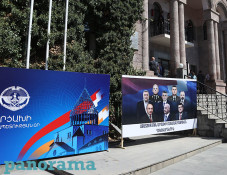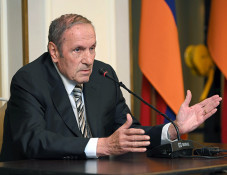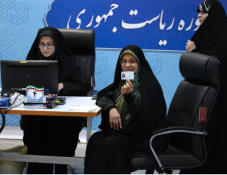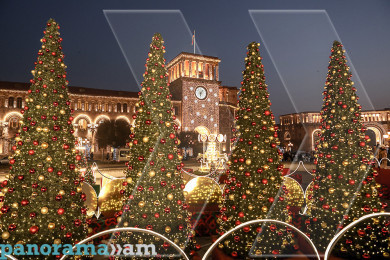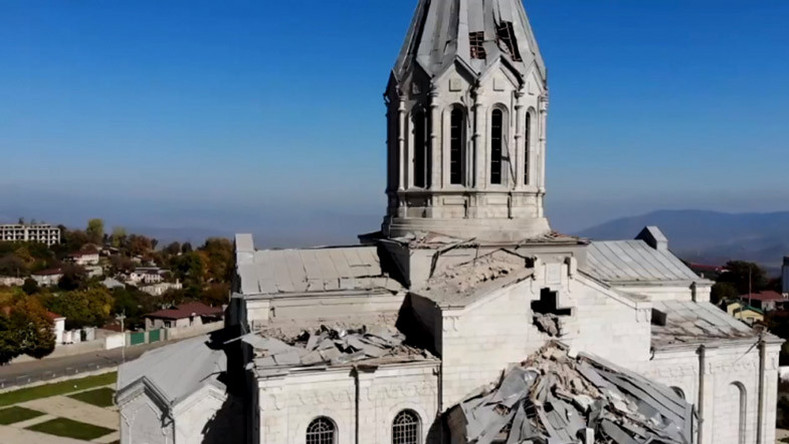
Artsakh slams Azerbaijan's policy of cultural genocide
Artsakh’s Foreign Ministry on Wednesday issued a statement on Azerbaijan’s policy of destruction and appropriation of the Armenian cultural and religious heritage in Nagorno-Karabakh. The full statement is provided below.
"We strongly condemn the statement made on 2 May by the Chairman of the State Committee on Religious Associations of Azerbaijan, which says that the Armenian clergy should leave Dadivank Monastery, because it allegedly belongs to Caucasian Albania and, sooner or later, will be governed by the Albanian-Udi religious community.
Such a statement by the head of a state body of Azerbaijan constitutes a gross violation of the ICJ ruling of 7 December 2021, and once again demonstrates that the authorities of Azerbaijan are implementing a consistent policy of ethnic cleansing of Artsakh, destruction and appropriation of the Armenian historical, cultural and religious heritage.
In this regard, we consider it necessary to remind that since November 2020, Dadivank Monastery has been under the control of the Russian peacekeepers, who are called to ensure the unimpeded and safe access of citizens to the sanctuary. Furthermore, UNESCO, as the world's leading specialised organisation, has repeatedly emphasised that historical and cultural heritage should not become a tool for political goals, and has called on all member states throughout the world to respect this principle.
As a result of the war and occupation of the territories of Artsakh in 2020, as many as 1.5 thousand Armenian historical and religious monuments, including monasteries, churches, khachkars (cross-stone), archaeological sites, fortresses, castles, sanctuaries, etc., came under the control of Azerbaijan. During the 44 days of aggression, the armed forces of Azerbaijan deliberately targeted, destroyed or desecrated a number of monuments and sanctuaries, and immediately after the war, the Azerbaijani government initiated a policy of "albanisation" of the Armenian historical and religious heritage, trying to erase all traces of the millennia-old Armenian presence in Artsakh and promoting pseudo-historical theses to justify the destruction and transformation of the Armenian monuments. In particular, in 2021, during a visit to the village of Tsakuri in the occupied Hadrout region, President Aliyev, pointing to the Armenian writings on the Tsaghkavank Church of the Holy Mother of God (12th century), stated that they were fake, that the church was Albanian, and personally ordered to erase those writings. Later, even a working group of “Albanian history and architecture specialists” was set up in Azerbaijan, whose task was to remove the “false traces left by Armenians” from the so-called “Albanian churches”. Among the striking examples of Azerbaijani vandalism are also the bombing of the Ghazanchetsots Cathedral in Shushi during the 2020 hostilities, and after that its transformation under the guise of repair work, the destruction of the Church of St. John the Baptist ("Green Chapel"), the complete destruction of the Armenian Church of the Virgin Mary of Mekhakavan, etc.
Among the vivid examples of Azerbaijani vandalism are the bombing of the Ghazanchetsot Church of Shushi during the war, and then the transformation carried out under the guise of renovation, the destruction of the Church of St. Hovhannes the Baptist (Green Hour), the complete wiping out of the Armenian Church of the Virgin Mary in Mekhakavan, etc.
All these cases of vandalism, as well as Azerbaijan's consistent policy of denying access to the UNESCO mission to assess the state of the cultural objects and monuments in the occupied territories of Artsakh, show that the Armenian historical, cultural and religious heritage in the occupied territories of Artsakh is in danger: they are either transformed or destroyed due to Azerbaijan's anti-Armenian state policy.
Thus, trying in every possible way to expel the people of Artsakh from their historical homeland, Azerbaijan is pursuing a policy of not only ethnic cleansing, but also cultural genocide against Artsakh.
We once again call on the entire international community, all relevant international institutions, and first of all UNESCO, to take immediate and effective measures to ensure the access of international missions and relevant experts to the occupied territories of Artsakh to assess the state of the Armenian historical and cultural sites and monuments that have come under the control of Azerbaijan, and take them under international protection."
Newsfeed
Videos








